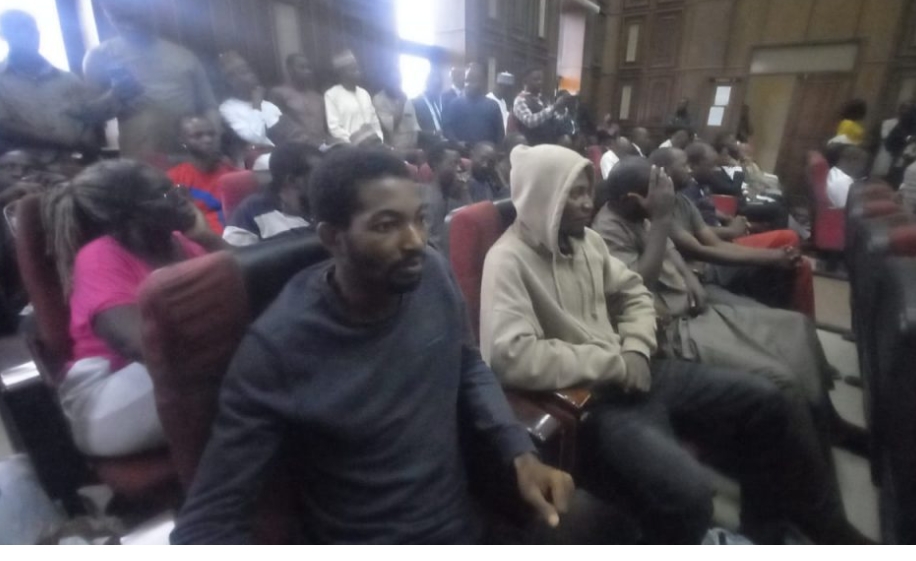The Federal Government, on Monday, arraigned ten #EndBadGovernance protesters who had been arrested in Abuja, Kaduna, Kano, and Gombe before a federal high court in Abuja.
The defendants, who were charged with treasonable felony, which carries the death penalty, and accusations of a “plan to destabilise Nigeria”, were brought to the court amidst tight security.
The defendants, while taking their pleas before the presiding judge, Justice Emeka Nwite, pleaded not guilty to the six counts filed against them.
The defendants are Michael Tobiloba Adaramoye (aka Lenin); Adeyemi Abiodun Abayomi (aka Yomi); Suleiman Yakubu; Comrade Opaluwa Eleojo Simeon; Angel Innocent; Buhari Lawal; Mosiu Sadiq; Bashir Bello (aka Murtala); Nuradeen Khamis; and Abdulsalam Zubairu.
The arrested protesters had faulted the court order that permitted their arrest and detention, telling President Bola Tinubu that he had no right to arrest them.
The protesters, in a suit marked FHC/ABJ/CS/1233/2024, challenged the August 22, 2024, Federal High Court order issued by Justice Emeka Nwite that permitted the Inspector General of police to remand them for 60 days pending the conclusion of the investigation on their case.
The protesters, in an affidavit deposed to by one Paul Ochayi, maintained that “protest is a right and in fact, the president of the Federal Republic of Nigeria, Asiwaju Ahmed Bola Tinubu had led protests in the past without being harassed, detained or remanded”.
They contended that by the actions of the security agencies, their right to life, the dignity of the human person, health and freedom of movement have been put under threat and violated by the police without any justification.
The applicants, Comrade Opaluwa Eleojo and 48 others, in a motion on notice filed on August 26, sued the Inspector General of Police as the sole respondent in the suit through a consortium of lawyers led by human rights lawyer Femi Falana.
The applicants in the motion on notice obtained by our correspondent on Saturday argued that the motion ex-parte on which their remand was approved was predicated on suppression and misrepresentation of material facts.
They contended that the motion ex-parte constitutes a gross abuse of the court process, asking the court to set aside, discharge and or vacate the exparte order that approved their remand in prison for 60 days.
They also sought an order from the court to grant them bail.

